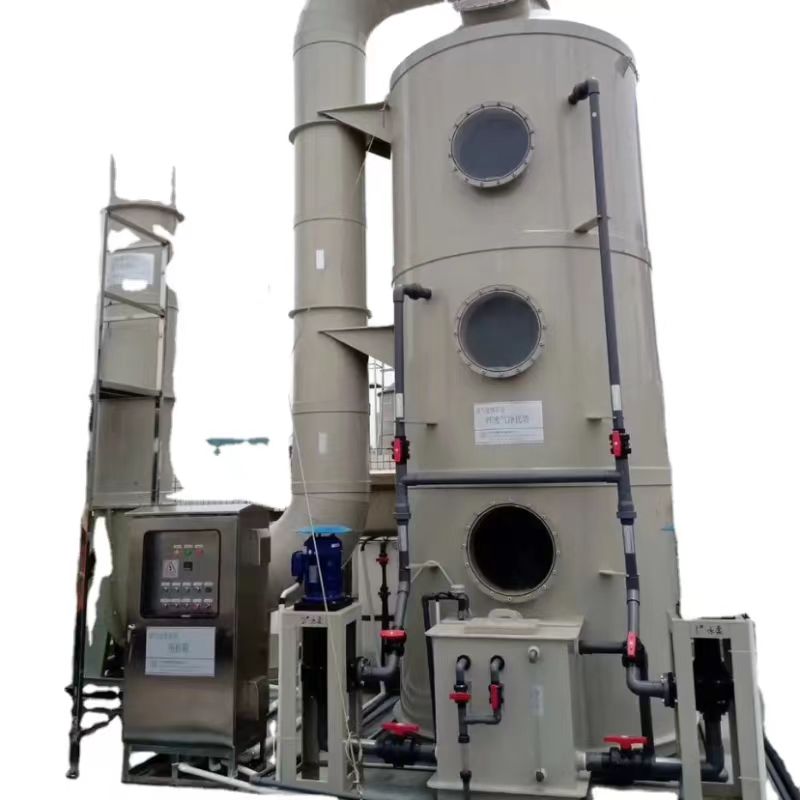Applications of Dust Collector in Industry
2023-10-26
Dust collectors are essential industrial equipment used to control and manage airborne dust and particulate matter generated in various manufacturing and industrial processes. These systems help maintain air quality, protect worker health, and prevent pollution. Here are some common applications of dust collectors in different industries:
1. Woodworking and Sawmills:
- Dust collectors capture sawdust, wood chips, and fine particles produced during cutting, sanding, and shaping of wood materials. They help reduce fire hazards and maintain air quality in these facilities.
2. Metalworking and Fabrication:
- Metalworking processes generate metal dust and fumes from cutting, grinding, welding, and machining. Dust collectors are used to prevent the inhalation of harmful particles and to avoid fire and explosion risks associated with metal dust.
3. Mining and Quarrying:
- Dust collectors are used to control airborne dust generated during excavation, crushing, and processing of minerals and ores. They help protect workers from respiratory illnesses and maintain air quality in mining operations.
4. Food Processing:
- In the food industry, dust collectors are used to capture food particles, flour, sugar, and other dry ingredients, preventing contamination and maintaining sanitary conditions. They are vital in ensuring food safety and compliance with hygiene standards.
5. Pharmaceutical Manufacturing:
- Dust collectors are used in pharmaceutical production to control dust and contaminants generated during drug manufacturing processes. Maintaining clean and sterile environments is crucial to pharmaceutical manufacturing.
6. Chemical and Petrochemical:
- Chemical processes often produce fine powders and hazardous dusts. Dust collectors are used to control emissions, protect workers, and prevent contamination in these facilities.
7. Cement and Building Materials:
- The production of cement, concrete, and building materials generates large quantities of dust. Dust collectors are used to capture this dust, preventing air pollution and health hazards.
8. Grain Handling and Agriculture:
- Grain storage facilities and agricultural operations use dust collectors to manage grain dust and protect workers from respiratory issues. They also help maintain the quality of stored grains.

9. Textile Industry:
- Dust collectors are used in textile manufacturing to capture fibers and dust particles generated during processes like carding, spinning, and weaving. They help maintain air quality and protect workers' health.
10. Automotive and Aerospace:
- Metalworking, painting, and finishing processes in the automotive and aerospace industries create dust, fumes, and particulates. Dust collectors are employed to control emissions and maintain air quality.
11. Energy and Power Generation:
- Power plants and energy facilities use dust collectors to manage ash and particulate emissions produced during the combustion of fossil fuels or biomass. This helps meet environmental regulations and reduce air pollution.
12. Welding and Metal Fabrication:
- Welding generates fumes and smoke that can be harmful to workers. Dust collectors with fume extraction systems help remove welding fumes from the workplace, improving air quality and worker safety.
13. Pharmaceutical Packaging:
- Dust collectors are used in pharmaceutical packaging facilities to control dust generated during the filling and packaging of powdered medications.
Dust collectors come in various types, including cyclone collectors, baghouse filters, cartridge filters, and electrostatic precipitators, each suited to specific applications and industries. Proper selection and maintenance of dust collectors are crucial for ensuring workplace safety, regulatory compliance, and environmental responsibility.


